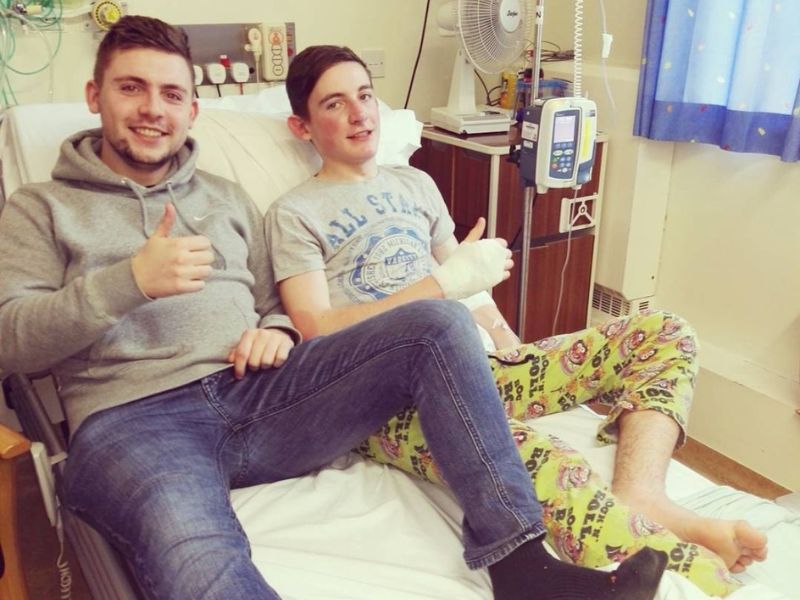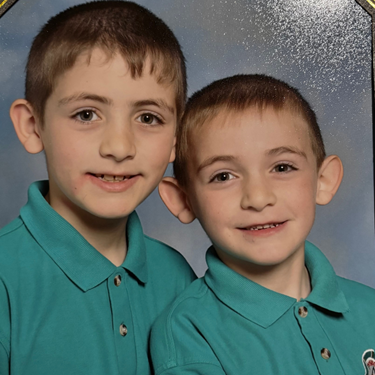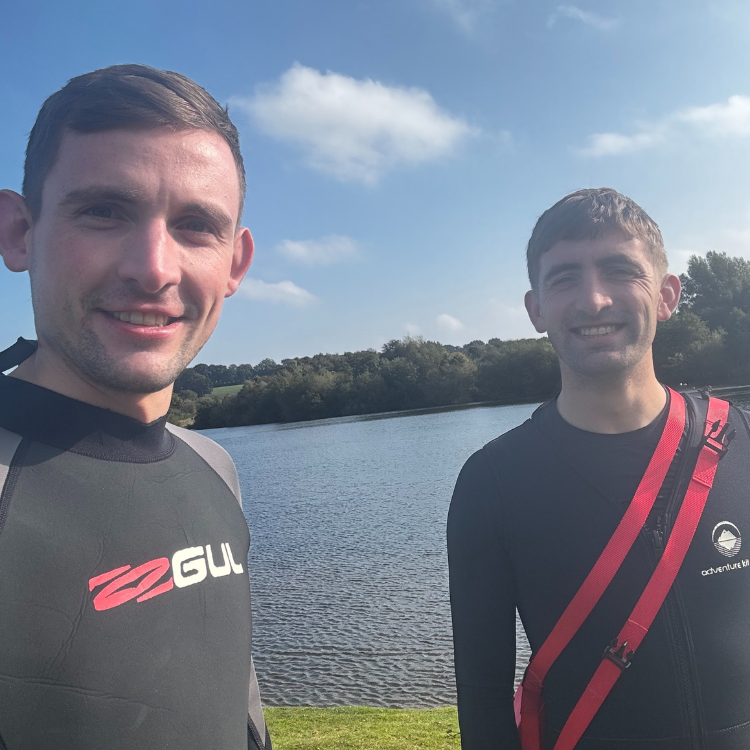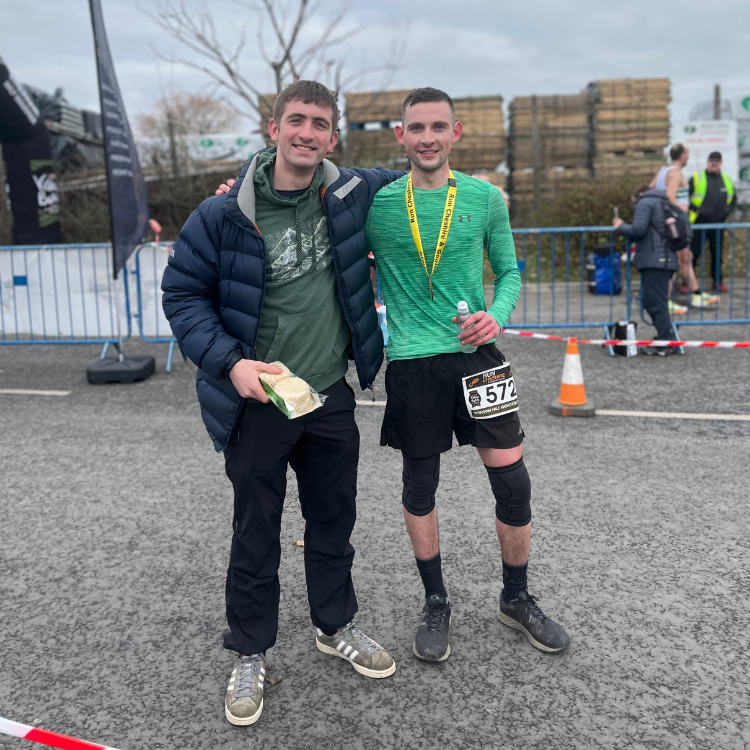
I was admitted to the children’s ward as I was only fifteen. Despite being on antibiotics, I got worse during the first 24-48 hours. My whole body was stiff, I couldn’t even touch my chin to my chest. After two weeks in hospital, I started to recover, but I had lost a lot of weight and was really weak. Even after I was discharged, it took months before I felt normal again. Luckily, I had no long-term after-effects. My hearing and eyesight were tested regularly, and everything was fine.
I was right in the middle of my GCSEs when I got sick, but my school was incredibly supportive. They held an emergency assembly to educate students about meningitis and gave me extra support and time to complete my exams.
A family connection
A year before I got ill, my brother, Saul, also had meningitis. He had the same strain, meningococcal meningitis, and his symptoms were similar - he felt like he had the flu, was extremely drowsy and deteriorated quickly. He also ended up in the hospital and took over a month to fully recover. Seeing what he went through meant we already had some idea of what to look out for when I fell ill, but it was still a terrifying experience.

?width=375&height=375)
After both my brother and I had meningitis, we saw a specialist in Manchester who diagnosed us with properdin deficiency, a rare immunodeficiency that makes us more susceptible to bacterial infections, especially those caused by Neisseria bacterium, which can cause meningitis. Now, we both take daily antibiotics to keep our immune systems as strong as possible.
Having had meningitis twice in my family has made me extra cautious. If I get a rash, I always do the glass test. If I feel unwell, I mentally run through the symptoms of meningitis to check for warning signs. Staying fit is important to me as it’s one way I feel like I can take control of my health.
Running the London Marathon for Meningitis Research Foundation
I’ve run a few marathons before, but London was always on my list. This time, I’m not putting too much pressure on myself as I want to raise awareness and funds for Meningitis Research Foundation more than anything. That said, I’m aiming for a sub-2 hour 50 minute finish. Training has been going well, and I have some great running partners who push me and keep me motivated.
)
Meningitis Research Foundation is a charity close to my heart. Both my brother and I have had meningitis and the work they do is incredible. Their website and resources have helped me learn more about the disease and educate others. Fundraising for them is the least I can do to give back.
Why sharing stories matters
No two people experience meningitis in the same way, so it’s important to share different stories. Someone might hear my experience and recognise symptoms they hadn’t been aware of before which could save a life.
I also want people to know that there can be life after meningitis. Some people face devastating consequences, but others, like me, are lucky enough to recover fully. I’m 24 now, the fittest I’ve ever been and working as a Police Community Support Officer, which I love.
Every job I’ve had, I’ve always made sure my colleagues and managers know about my history with meningitis, just in case. I know I have to be more cautious than most but it’s always better to be safe than sorry.